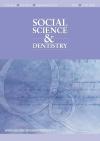Social Science and Dentistry

- Cover Date:
- September 2013
- Print ISSN:
- 2040-4263
- Vol:
- 2
- Issue:
- 2
Applying psychological models to evidence-based care by the dental team: a summary paper
Key words: Psychology models, dental setting, knowledge translation, dental health professional behaviour
Introduction
There is an ever-increasing number of medical and dental guidance documents being published, internationally and in the UK, recommending evidence-based care treatments and management pathways for clinicians to implement. However, it is well-documented that the translation of best practice recommendations into clinical practice requires more than the publication of guidelines, and that dental as well as medical patients are continuing to receive care which is not evidence-based, not needed, or even potentially harmful (Seddon et al., 2001; Grol, 2001; McGlynn et al., 2003; Grimshaw et al., 2004). There has been increased interest in the scientific study of methods to promote the systematic uptake of research findings into routine clinical practice over the past fifteen years (Bero et al., 1998; Davidson et al., 2003; Michie & Johnston, 2004; Eccles et al., 2005; ICEBeRG, 2006; Grol et al., 2007; Medical Research Council, 2008; Hakkennes & Dodd, 2008; Michie et al., 2009). However, the literature is now littered with inconsistent intervention results across different clinical problems and behaviours (Godin et al., 2008). The results of literature reviews (Grimshaw et al., 2004; Davies et al., 2010) suggest that this is in large part due to an evidence base which consists of limited descriptions of interventions and their context, as well as scant theoretical or conceptual rationale for intervention target, development, mechanism, or choice. To address these issues, researchers have begun applying psychological models to clinician compliance with evidencebased practice guidelines. Applying psychological models to knowledge translation from guidance to practice allows a view of why and how behaviours change; it offers an approach to how interventions can be built; and it offers a framework to support generalisability (Godin et al., 2008; Grol et al., 2007; Francis et al., 2009; Eccles et al., 2007; Grimshaw et al., 2007; McEachan et al., 2011). Most of this knowledge translation research has concentrated on medical professional behaviour. However, in the UK, medical and dental health professionals are subject to very different governmental, professional, organisational and business constraints. Little is yet known about what these differences mean for studying health professional compliance with best practice guidelines or even for the application of psychological models to knowledge translation, in particular, if results from research in the medical setting are generalisable across to the dental setting and applicable to dental health professional behaviour. This paper describes an infant body of work applying psychological models to knowledge translation in the dental setting, which may help further an understanding of these issues. It should be noted that this is far from a systematic review of the literature, but rather a summary paper based on the British Psychological Society symposium presentation on this topic.
- Article Price
- £15.00
- Institution Article Price
- £
- Page Start
- 95
- Page End
- 100
- Authors
- Debbie Bonetti
Articles from this issue
- Title
- Pg. Start
- Pg. End
- The Impact of Dental Disease on a sample of Aboriginal adults living in the Central Coast Region of New South Wales Australia
- 73
- 79
- Collecting psychosocial self-report data in oral health research: impact of literacy level and computerised administration
- 80
- 87
- Pre-operative expectations and recovery outcomes for third molar extraction surgery in Nigeria
- 88
- 94
